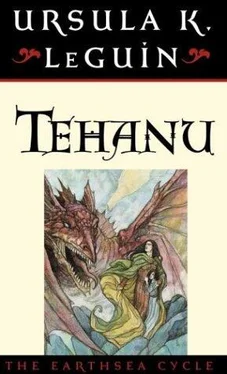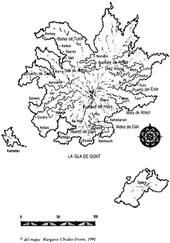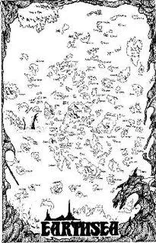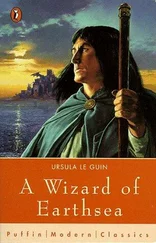Ursula Le Guin - Tehanu The Last Book of Earthsea
Здесь есть возможность читать онлайн «Ursula Le Guin - Tehanu The Last Book of Earthsea» весь текст электронной книги совершенно бесплатно (целиком полную версию без сокращений). В некоторых случаях можно слушать аудио, скачать через торрент в формате fb2 и присутствует краткое содержание. Город: New York, Год выпуска: 1990, Издательство: Atheneum, Жанр: Фэнтези, на английском языке. Описание произведения, (предисловие) а так же отзывы посетителей доступны на портале библиотеки ЛибКат.
- Название:Tehanu The Last Book of Earthsea
- Автор:
- Издательство:Atheneum
- Жанр:
- Год:1990
- Город:New York
- ISBN:нет данных
- Рейтинг книги:4 / 5. Голосов: 1
-
Избранное:Добавить в избранное
- Отзывы:
-
Ваша оценка:
- 80
- 1
- 2
- 3
- 4
- 5
Tehanu The Last Book of Earthsea: краткое содержание, описание и аннотация
Предлагаем к чтению аннотацию, описание, краткое содержание или предисловие (зависит от того, что написал сам автор книги «Tehanu The Last Book of Earthsea»). Если вы не нашли необходимую информацию о книге — напишите в комментариях, мы постараемся отыскать её.
Tehanu The Last Book of Earthsea — читать онлайн бесплатно полную книгу (весь текст) целиком
Ниже представлен текст книги, разбитый по страницам. Система сохранения места последней прочитанной страницы, позволяет с удобством читать онлайн бесплатно книгу «Tehanu The Last Book of Earthsea», без необходимости каждый раз заново искать на чём Вы остановились. Поставьте закладку, и сможете в любой момент перейти на страницу, на которой закончили чтение.
Интервал:
Закладка:
She sat down across the table from him. Late-spring sunshine poured in the low window across the table and shone on the brass fender in the hearth.
He pushed the plate away at last.
“So who’s been running the farm?” he asked.
“What’s that to you, son?” she asked him, gently but drily.
“It’s mine,” he said, in a rather similar tone.
After a minute Tenar got up and cleared his dishes away. “So it is.”
“You can stay, o’ course,” he said, very awkwardly, perhaps attempting to joke; but he was not a joking man. “Old Clearbrook still around?”
“They’re all still here. And a man called Hawk, and a child I keep. Here. In the house. You’ll have to sleep in the loft-room. I’ll put the ladder up.” She faced him again. “Are you here for a stay, then?”
“I might be.”
So Flint had answered her questions for twenty years, denying her right to ask them by never answering yes or no, maintaining a freedom based on her ignorance; a poor, narrow sort of freedom, she thought.
“Poor lad,” she said, “your crew broken up, and your father dead, and strangers in your house, all in a day. You’ll want some time to get used to it all. I’m sorry, my son. But I’m glad you’re here. I thought of you often, on the seas, in the storms, in winter.”
He said nothing. He had nothing to offer, and was unable to accept. He pushed back his chair and was about to get up when Therru came in. He stared, half-risen, "What happened to her?” he said.
“She was burned. Here’s my son I told you about, Therru, the sailor, Spark. Therru’s your sister, Spark.”
“Sister!”
“By adoption.”
“Sister!” he said again, and looked around the kitchen as if for witness, and stared at his mother.
She stared back.
He went out, going wide of Therru, who stood motionless. He slammed the door behind him.
Tenar started to speak to Therru and could not.
“Don’t cry,” said the child who did not cry, coming to her, touching her arm. “Did he hurt you?”
“Oh Therru! Let me hold you!” She sat down at the table with Therru on her lap and in her arms, though the girl was getting big to be held, and had never learned how to do it easily. But Tenar held her and wept, and Therru bent her scarred face down against Tenar’s, till it was wet with tears.
Ged and Spark came in at dusk from opposite ends of the farm. Spark had evidently talked with Clearbrook and thought the situation over, and Ged was evidently trying to size it up. Very little was said at supper, and that cautiously. Spark made no complaint about not having his own room back, but ran up the ladder to the storage-loft like the sailor he was, and was apparently satisfied with the bed his mother had made him there, for he did not come back down till late in the morning.
He wanted breakfast then, and expected it to be served to him. His father had always been waited on by mother, wife, daughter. Was he less a man than his father? Was she to prove it to him? She served him his meal and cleared it away for him, and went back to the orchard where she and Therru and Shandy were burning off a plague of tent caterpillars that threatened to destroy the new-set fruit.
Spark went off to join Clearbrook and Tiff. And he stayed mostly with them, as the days passed. The heavy work requiring muscle and the skilled work with crops and sheep was done by Ged, Shandy, and Tenar, while the two old men who had been there all their lives, his father’s men, took him about and told him how they managed it all, and truly believed they were managing it all, and shared their belief with him.
Tenar became miserable in the house. Only outdoors, at the farmwork, did she have relief from the anger, the shame that Spark’s presence brought her.
“My turn,” she said to Ged, bitterly, in the starlit darkness of their room. “My turn to lose what I was proudest of.”
“What have you lost?”
“My son. The son I did not bring up to be a man. I failed. I failed him.” She bit her lip, gazing dry-eyed into the dark.
Ged did not try to argue with her or persuade her out of her grief. He asked, “Do you think he’ll stay?”
“Yes. He’s afraid to try and go back to sea. He didn’t tell me the truth, or not all the truth, about his ship. He was second mate. I suppose he was involved in carrying stolen goods. Secondhand piracy. I don’t care. Gontish sailors are all half-pirate. But he lies about it. He lies. He is jealous of you. A dishonest, envious man.”
“Frightened, I think,” Ged said. “Not wicked. And it is his farm.”
“Then he can have it! And may it be as generous to him as-”
“No, dear love,” Ged said, catching her with both voice and hands-”don’t speak-don’t say the evil word!” He was so urgent, so passionately earnest, that her anger turned right about into the love that was its source, and she cried, “I wouldn’t curse him, or this place! I didn’t mean it! Only it makes me so sorry, so ashamed! I am so sorry, Ged!”
“No, no, no. My dear, I don’t care what the boy thinks of me. But he’s very hard on you."
“And Therru. He treats her like- He said, he said to me, ‘What did she do, to look like that?’ What did she do-!”
Ged stroked her hair, as he often did, with a light, slow, repeated caress that would make them both sleepy with loving pleasure.
“I could go off goat-herding again,” he said at last. “It would make things easier for you here. Except for the work." “
“I’d rather come with you."
He stroked her hair, and seemed to be considering. “I suppose we might,” he said. “There were a couple of families up there sheep-herding, above Lissu. But then comes the winter... .
“Maybe some farmer would take us on. I know the work-and sheep-and you know goats-and you’re quick at everything-”
“Useful with pitchforks,” he murmured, and got a little sob of a laugh from her.
The next morning Spark was up early to breakfast with them, for he was going fishing with old Tiff. He got up from the table, saying with a better grace than usual, “I’ll bring a mess of fish for supper.
Tenar had made resolves overnight. She said, “Wait; you can clear off the table, Spark. Set the dishes in the sink and put water on ‘em. They’ll be washed with the supper things.”
He stared a moment and said, “That’s women’s work,” putting on his cap.
“It’s anybody’s work who eats in this kitchen.”
“Not mine,” he said flatly, and went out.
She followed him. She stood on the doorstep. “Hawk’s, but not yours?” she demanded.
He merely nodded, going on across the yard.
“It’s too late,” she said, turning back to the kitchen. “Failed, failed.” She could feel the lines in her face, stiff, beside the mouth, between the eyes. “You can water a stone,” she said, “but it won’t grow.”
“You have to start when they’re young and tender,” Ged said. “Like me.”
This time she couldn’t laugh.
They came back to the house from the day’s work and saw a man talking with Spark at the front gate.
“That’s the fellow from Re Albi, isn’t it?” said Ged, whose eyes were very good.
“Come along, Therru,” Tenar said, for the child had stopped short. “What fellow?” She was rather nearsighted, and squinted across the yard. “Oh, it’s what’s his name, the sheep-dealer. Townsend. What’s he back here for, the carrion crow!”
Her mood all day had been fierce, and Ged and Therru wisely said nothing.
She went to the men at the gate.
“Did you come about the ewe lambs, Townsend? You’re a year late; but there’s some of this year’s yet in the fold.”
“So the master’s been telling me,” said Townsend.
Читать дальшеИнтервал:
Закладка:
Похожие книги на «Tehanu The Last Book of Earthsea»
Представляем Вашему вниманию похожие книги на «Tehanu The Last Book of Earthsea» списком для выбора. Мы отобрали схожую по названию и смыслу литературу в надежде предоставить читателям больше вариантов отыскать новые, интересные, ещё непрочитанные произведения.
Обсуждение, отзывы о книге «Tehanu The Last Book of Earthsea» и просто собственные мнения читателей. Оставьте ваши комментарии, напишите, что Вы думаете о произведении, его смысле или главных героях. Укажите что конкретно понравилось, а что нет, и почему Вы так считаете.








